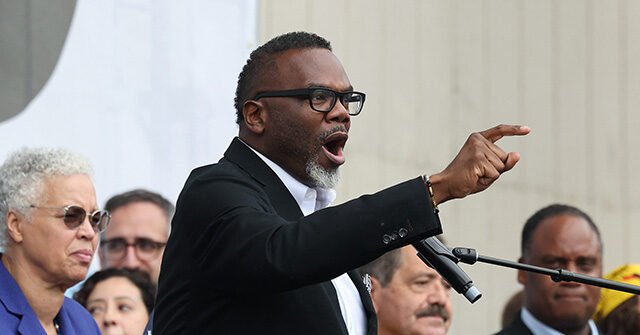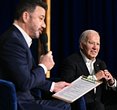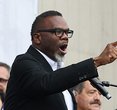
Brandon Johnson Stirs Controversy With Comparisons Of Migrants To Historical Slavery

Brandon Johnson's Bold Stand Against 'Illegal Alien' Terminology
Chicago's Mayor Brandon Johnson, known for his progressive stance, stirred the pot on Saturday with comments about immigration language that have rocked the political landscape. "We don't have illegal aliens," Johnson declared, dismissing the term as a racist construct. He equated the use of 'illegal aliens' for migrants to referring to Black people as 'slaves,' a comparison that has sparked fiery debate.
Johnson's comments came as a response to a reporter's question about his administration's undocumented individual expenditure report, which is yet to be submitted to the federal government. "Let's just get the language right," Johnson urged, insisting on referring to migrants as "undocumented individuals that are human beings." His passionate plea against what he described as "racist, nasty language" has turned heads and fueled discussions across media platforms.
A Controversial Instagram Post
Never one to shy away from the spotlight, Johnson took to Instagram to amplify his message, captioning a video clip of his remarks, "This isn't a sci-fi show. These are human beings. We will not abandon our humanity to score cheap political points." His ongoing critique of the Trump administration's immigration policies, which he has labeled as acts of war against Chicago, highlights his role as a vocal opponent of Immigration and Customs Enforcement (ICE) activities in the city.
“The last thing that I’m going to do is accept that type of racist, nasty language to describe human beings.”
Johnson has consistently linked opposition to the presence of undocumented migrants with broader racial injustices. His remarks continue to stir controversy, especially following his insistence that ICE officers should face legal consequences for executing their duties – a stance not shared by his own law enforcement officials.
Rhetoric and Repercussions
The debate took a personal turn as Johnson faced questions about whether he would support deportation in the case of a violent crime committed by a migrant. His evasive responses have been fodder for his critics, who argue that his policies undermine public safety.
As Johnson weaves together issues of race, immigration, and justice, his rhetoric is clear: the battle over language is, in his view, a battle for humanity. His persistent critiques of the Trump administration and ICE are part of a broader narrative against policies he deems unjust and discriminatory. Whether his words will resonate with Chicagoans or further polarize opinions remains to be seen.















